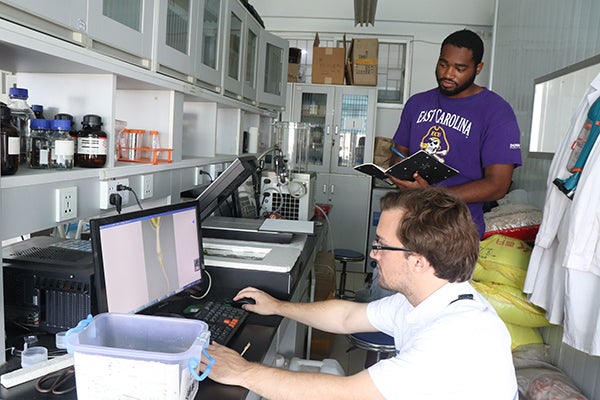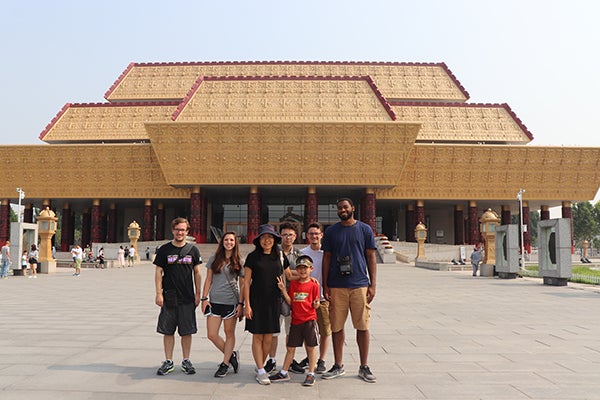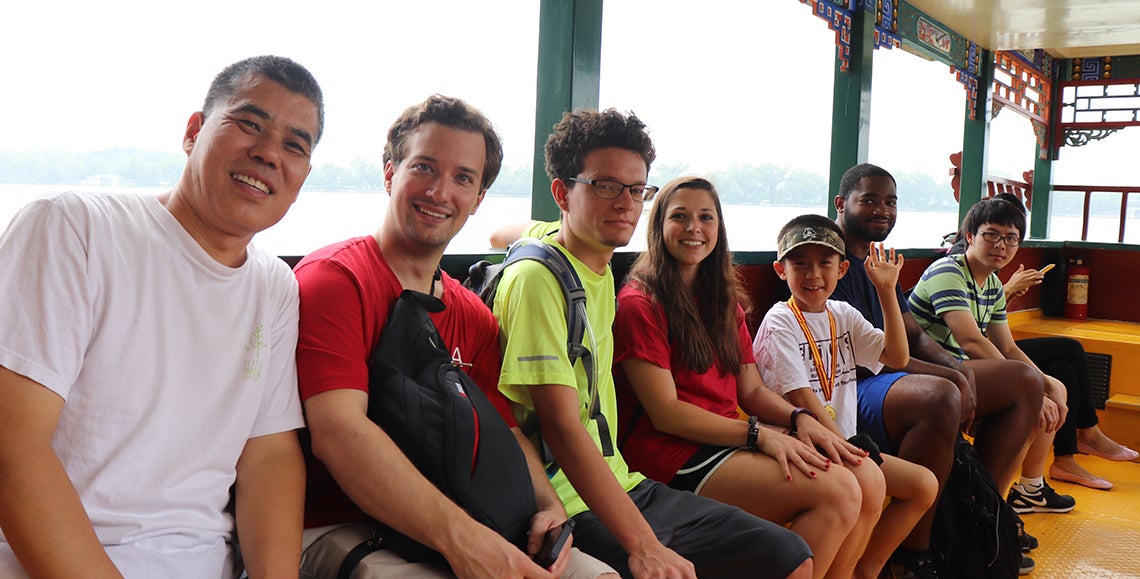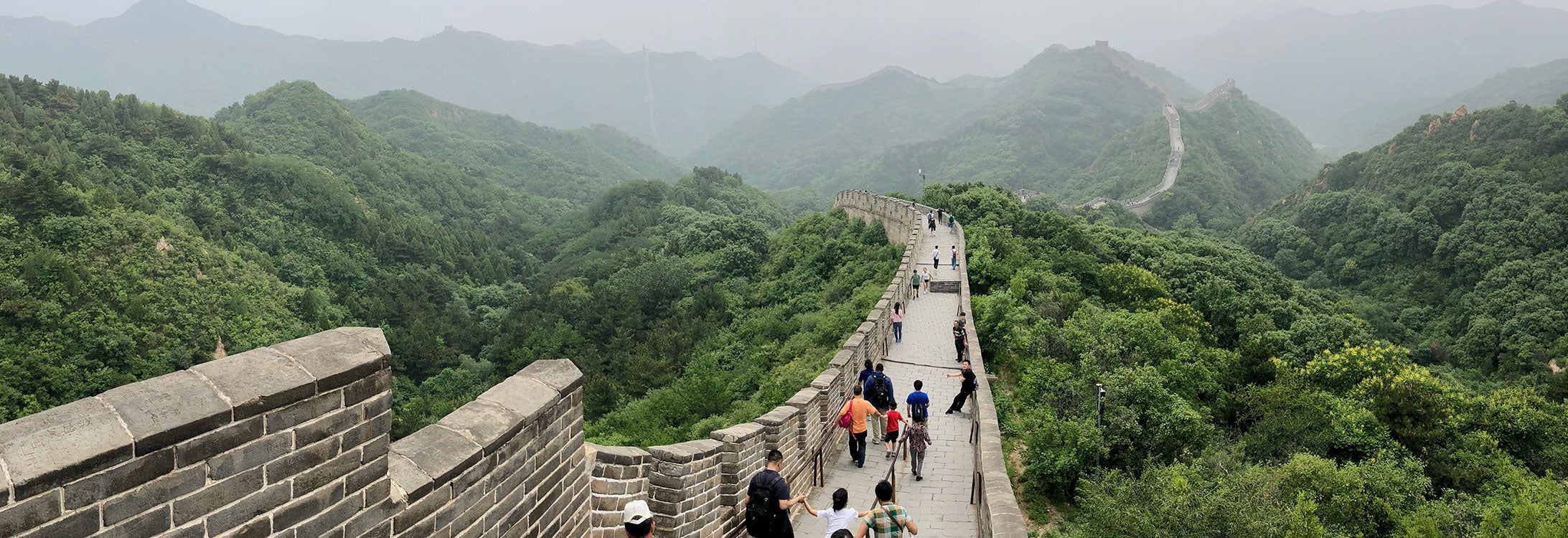PERFECTING LABORATORY SKILLS
Students perform collaborative research with Chinese mentors

ECU students Thomas Thornburg (seated) and Kyle Davis (standing) photograph and analyze the root of a peanut plant to identify developmental changes as a result of a potassium deficiency treatment. They conducted their research in the lab of Dr. Zhizong Zhang at the Henan Institute of Science and Technology. (Photo courtesy of Xiaoping Pan)
For six weeks, five ECU students traveled to China under the direction of Drs. Baohong Zhang and Xiaoping Pan, associate professors in the Department of Biology. The students visited the China Agriculture University in Beijing; Henan Institute of Science and Technology in Xinxiang, Henan Province; Anyang Institute of Technology in Anyang, Henan Province; and Xi’An, Shanxi Province.
Students spent a majority of their time at the Henan Institute of Science and Technology, where they performed collaborative research with mentors. Their research included learning more about plant biotechnology and biotechniques in the Chinese culture, as well as using new, hands-on laboratory skills.
“I was performing research on how cotton plants respond to different levels of potassium,” said Julia Fontana, a junior majoring in biology. “I gained so much knowledge on my trip but learning the techniques and processes of the real-time quantitative polymerase chain reaction were the most fascinating. All of the procedures performed allowed me to learn how to strategically conduct and analyze data, which was interesting as well as very rewarding.”
Thomas Thornburg, a graduate student in the molecular biology and biotechnology masters program, said he learned many new research techniques, including chlorophyl analysis, quantitation of photosynthesis and RNA extraction. He also said this was his first study abroad trip and, in fact, the first time he had ever left the United States.
“To anyone who has the opportunity to study or perform research abroad, I would absolutely encourage them to take it. It is an amazing experience that may only come once in a lifetime, and it will surely change your perspective on the world,” Thornburg said.

Pictured (left to right) Thomas Thornburg, Julia Fontana, Dr. Xiaoping Pan and her son Henry Zhang, Kevin Chen, Isaac Pratt and Kyle Davis visited the National Museum of Chinese Writing in Anyang City, Henan Province, during their research trip to China. (Photo courtesy of Xiaoping Pan)
ECU students had to overcome the language barrier and cultural differences to communicate on a day-to-day basis with their research mentors.
“Our students impressed the Chinese students and faculty in terms of their diligence, creativity, persistence in research and their friendly manner,” Pan said. “I believe they have become more confident and willing to embrace challenges and accept different ideology, and are capable of facing diverse problems and situations.”
“Building relationships with the Chinese and learning their culture were the two things I enjoyed most about my trip. It shocked me how everyone I met was so incredibly nice and selfless – it was very hard to say goodbye,” said Fontana.
When not performing their research, students were able to visit local parks and museums, see the diverse landscape and national monuments, taste authentic Chinese food, shop and exercise with their new Chinese friends.
“By far the best part of visiting China was the wonderful people that I was able to meet,” Thornburg said. “We were given a warm reception everywhere we went. The faculty at the schools we visited were extraordinarily kind and supportive, and the students I worked with quickly became dear friends that I already miss. I definitely enjoyed seeing China’s incredible architecture and visiting the intriguing cultural sites, but the relationships that I formed while working at the university are what will remain memorable for years to come.”

Dr. Baohong Zhang, Thomas Thornburg, Isaac Pratt, Julia Fontana, Henry Zhang, Kyle Davis and Kevin Chen are seen here taking a boat ride on Kunming Lake at the Summer Palace Park of Beijing, China. (Photo courtesy of Xiaoping Pan)
